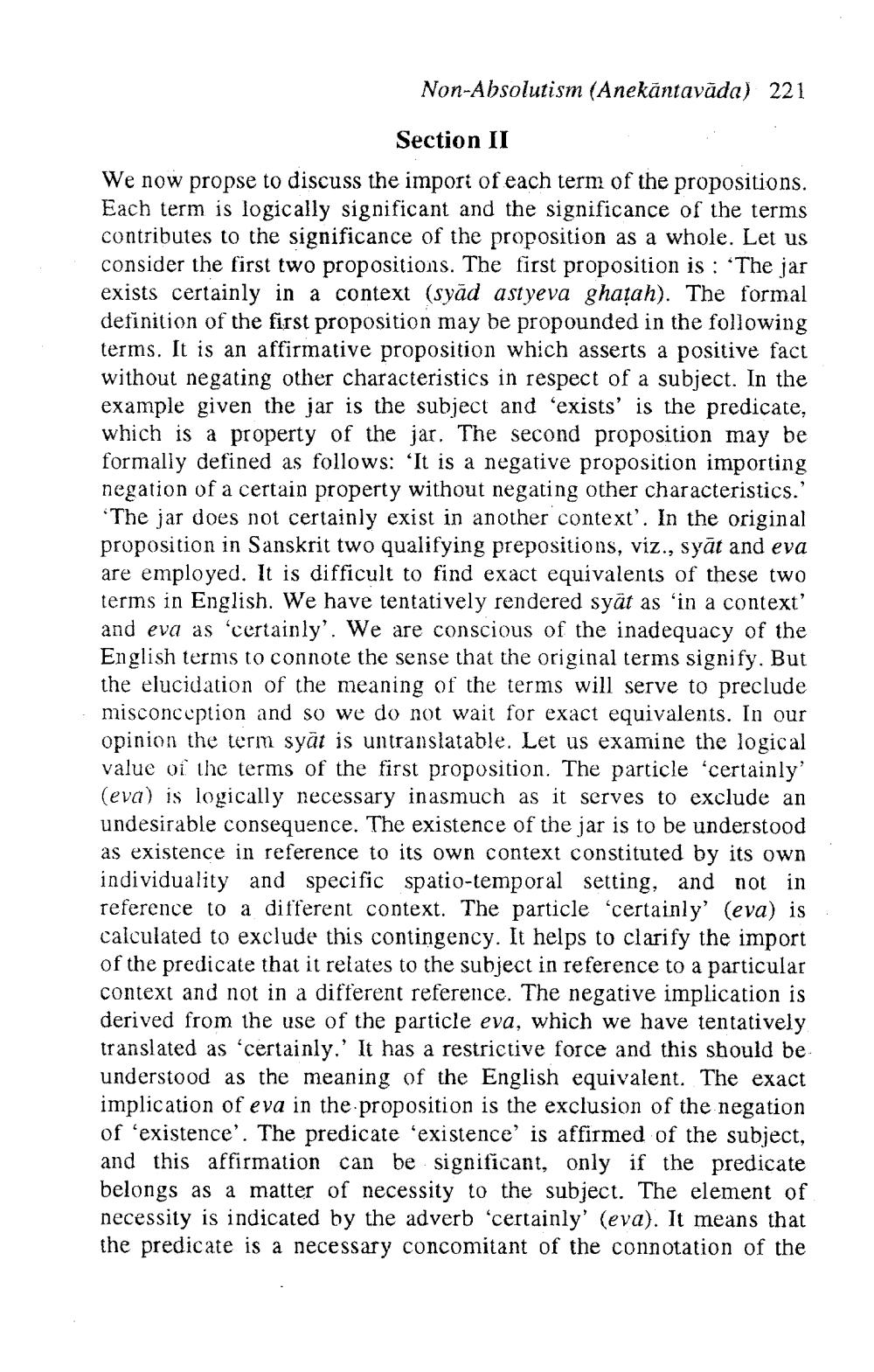________________
Non-Absolutism (Anekāntavāda) 221
Section II
We now propse to discuss the import of each term of the propositions. Each term is logically significant and the significance of the terms contributes to the significance of the proposition as a whole. Let us consider the first two propositions. The first proposition is : "The jar exists certainly in a context (syād astyeva ghațah). The formal definition of the first proposition may be propounded in the following terms. It is an affirmative proposition which asserts a positive fact without negating other characteristics in respect of a subject. In the example given the jar is the subject and 'exists' is the predicate, which is a property of the jar. The second proposition may be formally defined as follows: 'It is a negative proposition importing negation of a certain property without negating other characteristics.' *The jar does not certainly exist in another context'. In the original proposition in Sanskrit two qualifying prepositions, viz., syāt and eva are employed. It is difficult to find exact equivalents of these two terms in English. We have tentatively rendered syät as 'in a context' and eva as certainly'. We are conscious of the inadequacy of the English terms to connote the sense that the original terms signify. But the elucidation of the meaning of the terms will serve to preclude misconception and so we do not wait for exact equivalents. In our opinion the term syāt is untranslatable. Let us examine the logical value of the terms of the first proposition. The particle 'certainly (eva) is logically necessary inasmuch as it serves to exclude an undesirable consequence. The existence of the jar is to be understood as existence in reference to its own context constituted by its own individuality and specific spatio-temporal setting, and not in reference to a different context. The particle 'certainly' (eva) is calculated to exclude this contingency. It helps to clarify the import of the predicate that it relates to the subject in reference to a particular context and not in a different reference. The negative implication is derived from the use of the particle eva, which we have tentatively translated as "certainly.' It has a restrictive force and this should be understood as the meaning of the English equivalent. The exact implication of eva in the proposition is the exclusion of the negation of 'existence'. The predicate 'existence is affirmed of the subject, and this affirmation can be significant, only if the predicate belongs as a matter of necessity to the subject. The element of necessity is indicated by the adverb 'certainly' (eva). It means that the predicate is a necessary concomitant of the connotation of the




